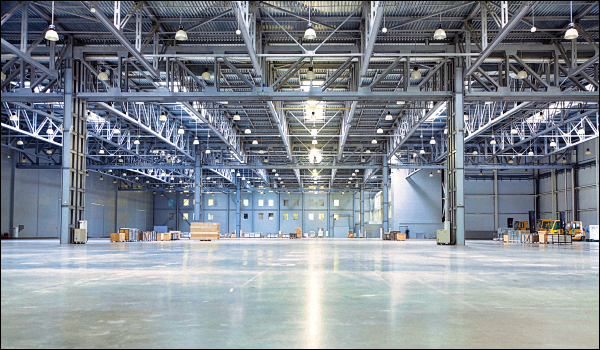
RECENT RESEARCH SUGGESTS we are going to need 490,000 m² of new warehouse space per annum over the next couple of years – just to keep up with the current rapid consumer demand. This is the equivalent of about 80 football fields!
But do these big sheds make a good investment for those looking to invest in commercial warehousing?
Like many other commercial property types, warehouses are a substantial investment and require significant existing capital to enter the market.
The Pros
Demand
The major behavioural shift towards online shopping has meant warehouse space is in high demand, with major retailers needing more space for manufacturing, storage and distribution than ever before. This adds to a warehouse’s case as a strong investment.
But it’s still important to remember to do your research. Simply because demand is booming doesn’t automatically mean any warehouse will be successful.
Longevity
The demand for warehouses looks like it won’t be slowing down anytime soon. Unlike some other commercial property options, warehouse demand isn’t seasonal, and the use of the property is constant. Plus, evolving smart technology (like warehouse automation) is making it even more appealing to potential tenants.
Factors such as these mean longer leases are the preferred choice among tenants, guaranteeing a steady income stream for an extended period.
Tax deductions
Warehouse, like many sizeable properties, produce substantial tax deductions for the owner. This can range from expenses like interest repayments, insurances, property management fees and much more.
One of the most beneficial deductions available from warehouses is the depreciation available.
Property depreciation is the natural wear and tear of property and assets over time and can be claimed on the property’s structure (capital works) and the easily removable or mechanical assets (plant and equipment).
Warehouse owners can take advantage of the structure of the property and any assets they own. While the tenant installs most of their own fit-out, some common assets held by the owner include hot water systems, air-conditioning units and floor coverings.
Depreciation can reach hundreds of thousands, sometimes millions, of dollars in tax deductions for the property owner depending on the warehouse size. The bonus is that no money needs to be spent to claim it.
The Cons
Need the upfront capital
Warehouses aren’t the most affordable option when starting a commercial property portfolio. The high demand for these properties is also feeding into the price growth of the sector.
Talking to a financial professional prior to any purchase is crucial to ensure the upfront capital funds are in place.
Maintenance and repair costs
Warehouses are big spaces to manage. While the tenant will look after their own side of the maintenance of the property, you will still come across maintenance bills that need to be picked up.
These can include things like leaks, the repair and maintenance of assets you own (eg: air-conditioning systems) and anything else that doesn’t fall under the tenant’s responsibility.
Tied-up capital
Warehouse investments have low levels of liquidity, unlike other investment options like trading shares. But this is probably one of the reasons why property, whether residential or commercial, should always be part of a long-term investment strategy.
Bottom line: The market is proving just how in-demand warehouse space is. But it’s essential to align any potential warehouse purchase with your personal investment strategy, financial position and always seek expert advice.













Speak Your Mind